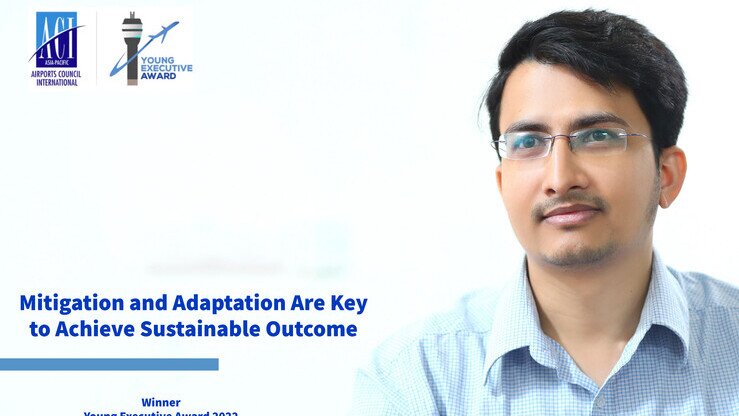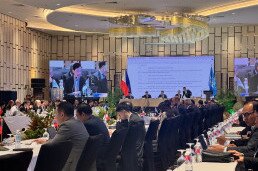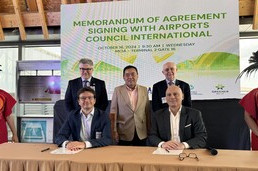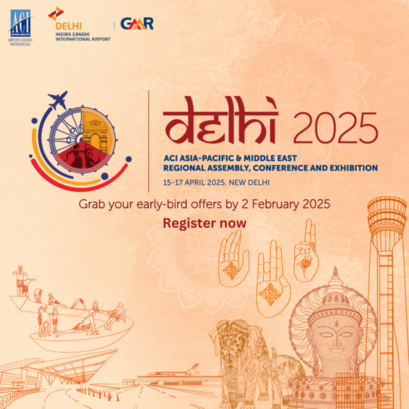
Mitigation and Adaptation Are Key to Achieve Sustainable Outcome: Rekib Ahmed, Winner of ACI Asia-Pacific Young Executive Award 2022
- 2022-08-03
Rekib Ahmed, an Environmental expert from Delhi International Airport Limited, is the latest winner of the ACI Asia-Pacific Young Executive Award (YEA) 2022.
Launched in 2009 by ACI Asia-Pacific, the Young Executive Award programme encourages promulgation of innovative ideas and best practices from young professionals among Asia-Pacific and the Middle East airport community. This year’s paper addressed the theme “Adapting Airports to a Changing Climate in the Region”. Ahmed demonstrated exceptional research, analysis and appropriate interventions in his submission, contributing to the aviation sector in becoming a more sustainable and resilient mode of transportation.
In an interview with ACI Asia-Pacific, Ahmed speaks about his inspiration on how the dynamic of climate change has impacted his career, his contribution to the aviation sector, and adopting green practices to his daily life.
- How has your understanding of climate change adaptation evolved over your career?
Climate change has been one of the key areas of interest for me for a very long time. I started my career as a climate change consultant in developing mitigation projects. This hands-on experience has provided me a good understanding of the dynamics of climate change. Climate change is a complex issue and needs multi-pronged strategy to address it. The impacts of climate change are becoming more obvious and severe with each passing year. To achieve effective and sustainable outcome, both mitigation and adaptation efforts need to go hand in hand.
We started developing climate change adaptation and mitigation strategies for Delhi Airport by understanding the key challenges at hand and with an objective of maximising the opportunities. The highly local and regional aspects of climate change impacts demand a unique set of relevant solutions which is specific for the site. Because of its dynamic nature, the understanding of climate change is evolving with time and with new scientific findings, our understanding of adaptation requirements is also growing. The success of global aviation sector will depend on how we act on these findings.
- What inspired you to participate in the Young Executive Award 2022, and what does it mean to win this award?
I am very delighted to win this prestigious award for the year 2022. I am fascinated by the ACI Asia Pacific Young Executive Award and always dreamt of winning the award. Young Executive Award is an opportunity for all of us to express our learnings and convert our understandings into solutions to address challenges faced by the aviation sector in our region.
The award motivates me to further work on various aspects of sustainability at Delhi Airport. This award further reaffirms us to take measures to build a sustainable aviation hub. Being recognised this prestige award, I hope to inspire more young professionals to participate in the Young Executive Award to demonstrate their knowledge and help the growth of the aviation sector by identifying solutions to key challenges.
- What are the “green” habits you practise in daily life?
To me, creating awareness among people on current environmental issues and highlighting the role everyone can play is the most important “green habit”. I try to create this awareness not only within the organisation but also externally on all environmental issues that we are facing today. Little efforts put in by individuals create significant impacts when practised by a large population every day. I also volunteer for social causes and try to educate kids on environmental issues through Corporate Social Responsibility (CSR) wing of DIAL.
Besides, I also adopt energy efficiency and conservation measures at home by reducing usage of plastics and focusing more on outdoor physical activities such as cycling or running, as indoor physical activities that lead to increased air conditioner and energy usage, precisely on foods and materials selections while avoiding wastages etc.








